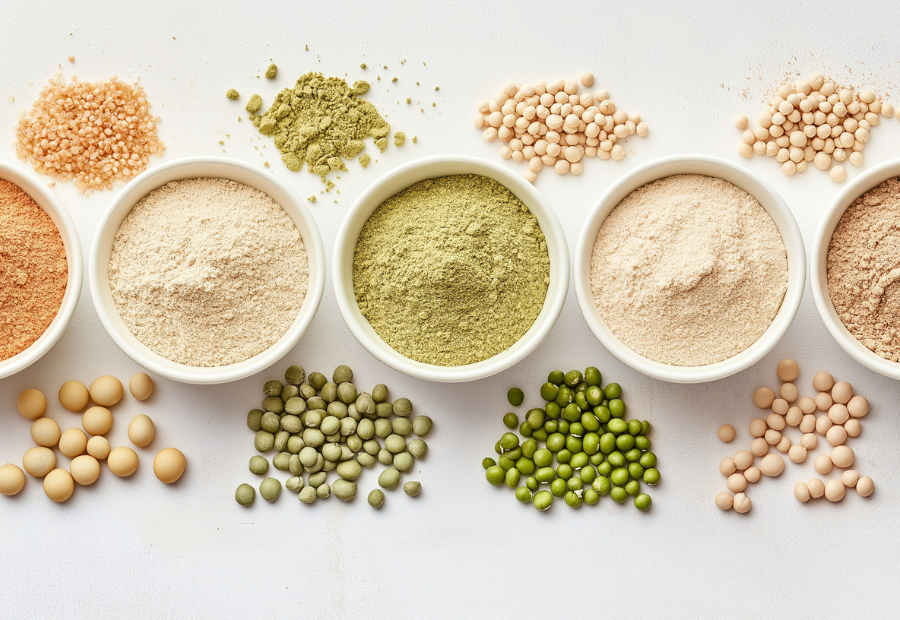Tinctures and extracts are both liquid herbal preparations, but they differ in
concentration, production methods, and potency. Let’s examine the differences between
extracts and tinctures in more detail.
Tinctures are made by soaking herbs in the menstruum which acts as a solvent. Alcohol
is often the solvent of choice, although other liquids such as vinegar may be useful for
some plants. Soaking the herb in the solvent extracts the active constituents.
Studies show, according to pharmaceutical references like The United States
Pharmacopeia, this traditional method typically uses a ratio of 100-200 grams of dried
herb per liter of solvent. Although effective, tinctures have a high alcohol content (60-90
percent), which dilutes the herbal compounds, resulting in a less concentrated product.
Extracts are more potent than tinctures because they use a higher herb-to-solvent ratio,
often 1 kilogram of dried herb per liter of solvent.
Nature’s Answer enhances this process further with our proprietary Bio-Chelation™ cold
extraction method. This technique removes the alcohol after the extraction is complete
and concentrates the active constituents. Nature’s Answer then offers these
concentrated extracts with either a low 12-15% organic alcohol, or as an alcohol-free
liquid herbal extract. These concentrated extracts offer up to 5-10 times more herb per
ml of liquid than a tincture.
When comparing extracts vs tinctures, one of the first things to consider is the
varied health benefits of each type of supplement. Understanding these differences
can help you choose the best option for your health needs.
Tinctures and extracts are valued for their convenience and long shelf life. Here are
some of the key benefits:
Rhodiola Rosea, an adaptogen herb, has been used in traditional herbalism to help the
body adapt to stress and enhance endurance*. Known for its ability to support a healthy
mood, and a relaxed state*, Rhodiola Rosea is available in both tincture and extract
forms. Extracts of Rhodiola are typically more concentrated, making them a potent
choice for those seeking increased energy and resilience during stressful situations*.
Rhodiola Rosea extracts can provide a more potent dose of its active compounds, such
as rosavin and salidroside, helping to support mental and physical performance*.
Both herbal tinctures and extracts are versatile options for adding herbal medicines to
your daily routine.
Herbal tinctures and herbal extracts can be added to water, tea or taken directly under
the tongue for faster absorption.
For example, kava root extract is taken to reduce anxiety* when placed under the
tongue for a few seconds the side effects will be felt almost immediately within 5-10
minutes.
Herbal extracts are more concentrated, so taking less to achieve the same effect as a
more diluted tincture. Therefore, herbal extracts are significantly more cost-effective.
They're preferred for targeted health support, such as immune support, relieve stress,
energy levels, digestion, or maintaining balanced health*.
Nature’s Answer’s extracts are particularly beneficial for those who need an alcohol-free
option, making them suitable for children, the elderly, or anyone with a sensitive
immune system or sensitivity to alcohol.
For a deeper understanding of the different types of herbs and supplements offered by
Nature's Answer, including the distinctions between extracts, tinctures, and glycerites,
check out our simple guide to understanding Nature's Answer's extracts vs tinctures and
glycerites. This guide explains the different types of extracts and how they're made,
helping you make informed decisions for your health and wellness.
Nature’s Answer’s extracts are particularly beneficial for those who need an alcohol-free
option, making them suitable for children, the elderly, or anyone with a sensitive
immune system or sensitivity to alcohol.
